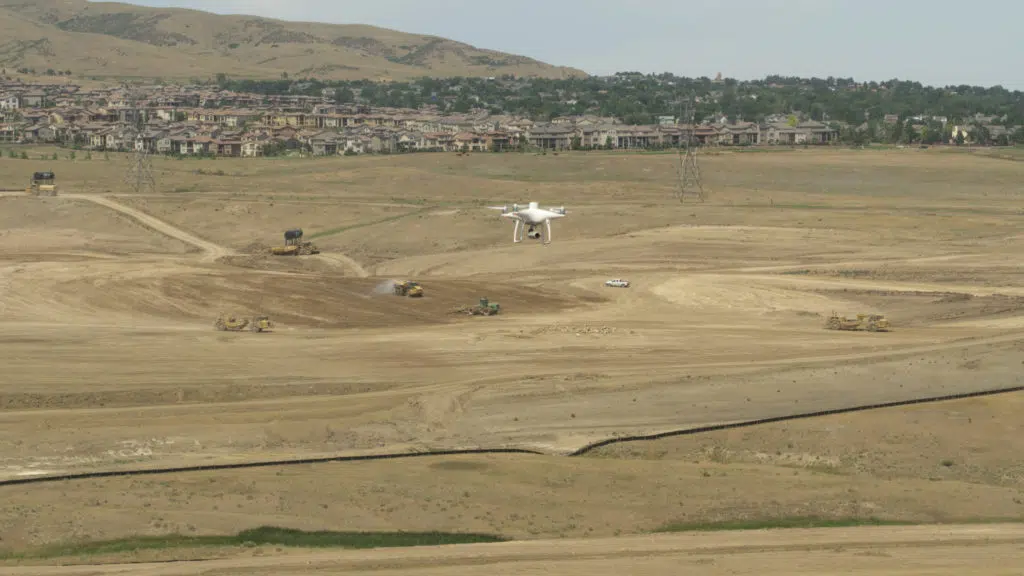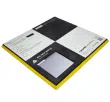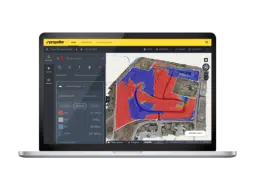Construction Cost Overruns: 5 Tips to Keep Your Budget on Track
As the construction industry rebounds from the pandemic, firms are seeing material and labor costs rise sharply, making managing expenses even more critical for every project. While sticking to an agreed-upon budget is crucial for profitability, it’s estimated that 90% of projects experience cost overrun.
Not only do cost overruns usually go hand-in-hand with extended timelines, but they also have the potential to damage the credibility of your business. Teams that turn to digitized workflows using drone data can significantly reduce instances of cost overruns. Read on to discover how cost overruns can negatively impact your business, as well as tips to avoid them.
Where do cost overruns come from, and how do they affect construction firms?
Cost overruns are typically caused by underlying issues in project management, communication barriers, and poor scheduling. They can even arise before you’ve even broken ground on a project, if you aren’t bidding effectively.
While extreme weather and other forces beyond your control can have a big impact on budgets, cost overruns are usually the result of human error and poor planning. What’s on the line when you’re over budget on even just one project? Here’s a hint—cost overruns have long-ranging effects on your company, including:
- Financial implications. Wide-ranging financial implications generally accompany cost overruns. Most significant is rework, which adds up fast considering time, labor, and materials. Your team could also face financial penalties for project delays or fines due to worksite mistakes.
- Project delays and increased labor costs. Studies have shown that fewer than 30% of contractors complete projects on-time and on-budget. Delays create a snowball effect, as most contractors spend up to a quarter of their working hours waiting for other teams to finish their work. Costs add up quickly when equipment and teams have to wait for other work to finish first.
- Loss of credibility. While customers understand that many construction projects, especially large-scale ones, can take longer to finish than expected, they’re unhappy when it happens to their project. Mistakes and delays make customers dissatisfied at best and can cause legal disputes at worst. Missed budgets and timelines on one project can have a long-term negative impact on your company’s credibility.

Drone technology can help you avoid cost overruns
Alongside better planning, digitizing workflows with the help of drone survey data can reduce many of the common problems or elements that lead to cost overruns, helping your team stick to your budget and maximize efficiency and revenues. Here are some important tips to keep cost overruns from harming your business:
- Bid better. Poor bidding places projects behind right from the start. Incorporating new technologies, particularly drone surveying, helps you get projects—particularly large-scale ones—off on the right foot. Drone survey data provides valuable pre-construction insights, helping earthworks crews plan for the exact volume of material that needs to be moved for the project. By flying the site before submitting a bid, you’ll avoid underbidding—which could lead to a net loss for the project—or overbidding, which could lose you the project.
- Create a risk management plan. Projects of all sizes and scope should include a risk management plan. By using foresight and 3D models created from drone data, you can create a risk management plan that covers potential pitfalls you could face at each stage of construction.
- Use technology to manage design errors. Design errors often occur due to a mix of unknowns that weren’t accounted for during the design process and changes in project scope. Drone data platforms like Propeller provide progress tracking as contractors can fly their drone when they need updated data without halting work on the job site. With Propeller’s cloud-based platform, you have access to data anywhere, anytime, helping you match work to design.
- Manage material quantities. On average, construction teams can wait for materials to arrive as long as 80 minutes per day. Over the entire timeline of a large-scale project, this inefficiency can result in hundreds of thousands of dollars in lost productivity. Frequent drone surveys help you understand the volume of material to be moved, as well as what you need to bring in, to keep your project on track.
- Avoid rework. Drone data programs with 3D mapping technology provide construction teams with the frequent updates necessary for stakeholders and project managers to spot any errors or discrepancies before they become costly problems, thereby avoiding rework.
Prevent budget issues with drone data
Unfortunately, cost overruns in the construction industry have become commonplace—but it doesn’t have to be that way. By integrating drone survey technology into your day-to-day workflow, you can keep projects on time and on budget, helping you maximize profits and protect your company’s credibility.




